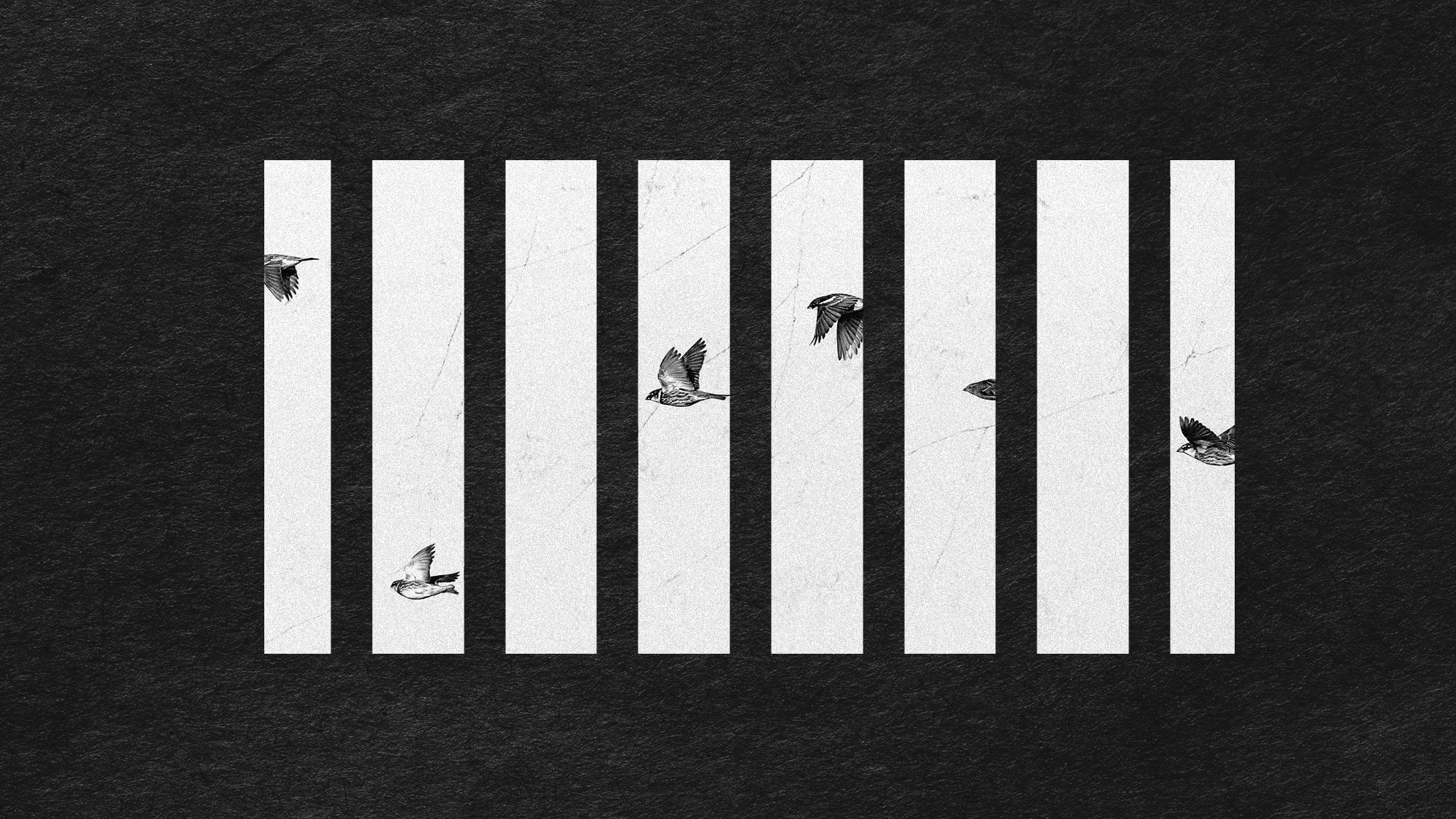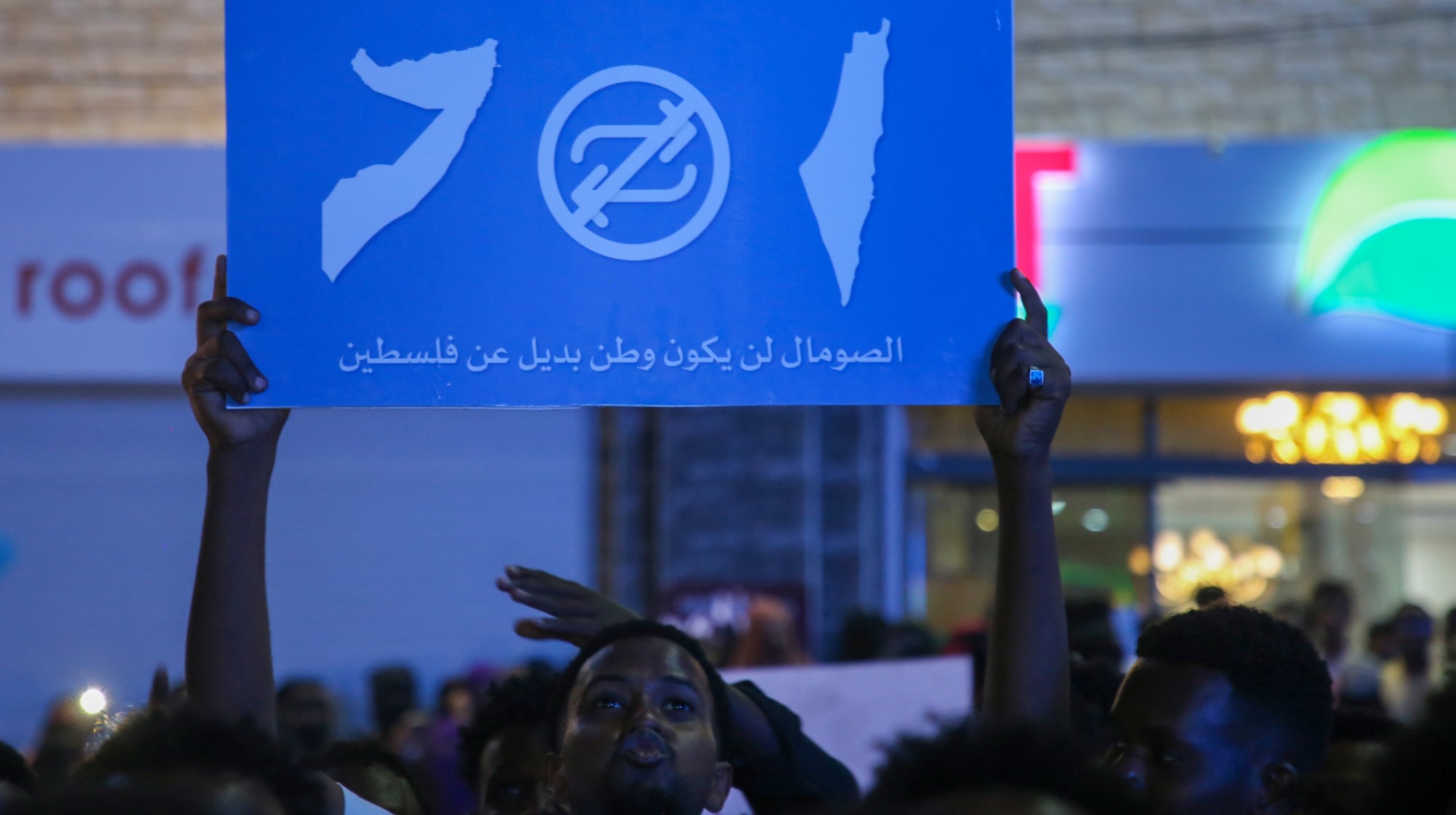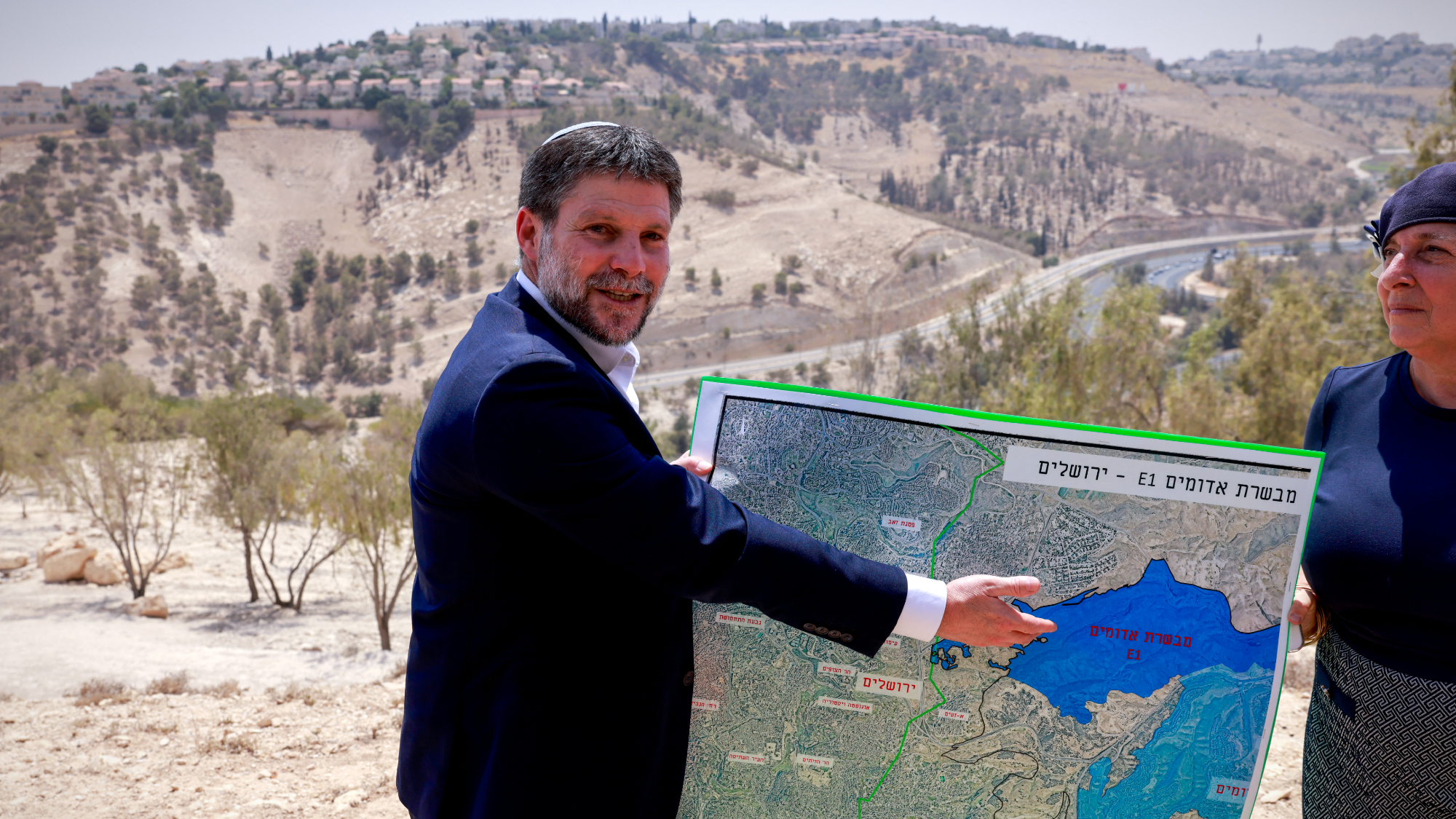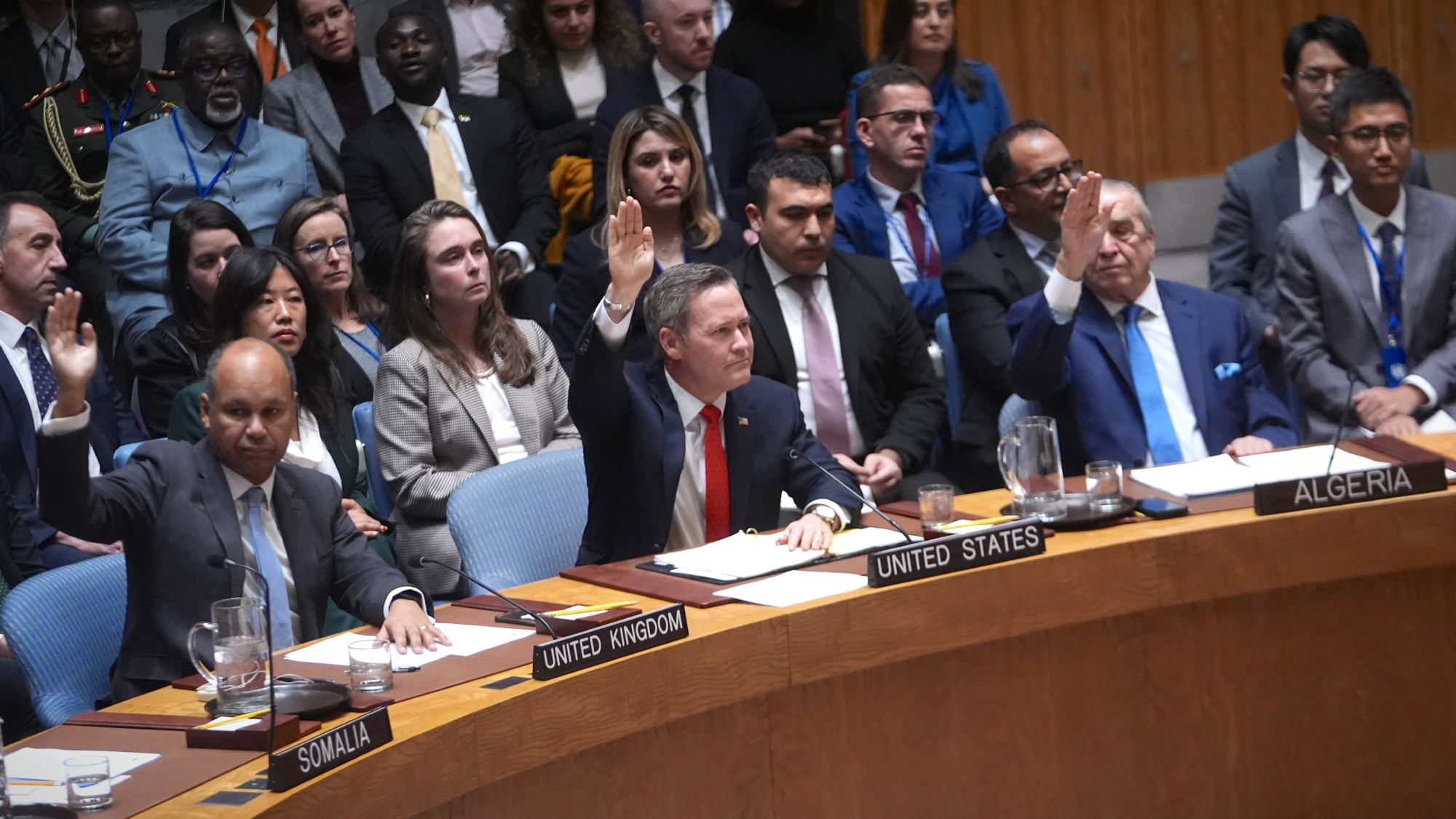Life after being a hostage
Israel expects released captives to have 'severe' physical and emotional challenges

A free daily email with the biggest news stories of the day – and the best features from TheWeek.com
You are now subscribed
Your newsletter sign-up was successful
Returning home after being held hostage is "often not the end of your journey", according to support group Hostage International. Instead a "new period of recovery and reintegration" begins, which can take years.
Israel has been preparing to welcome back the hostages released from Gaza with plans for medical care and psychological support, drawing on lessons learned from Holocaust survivors.
Strict guidelines
Six hospitals are preparing to receive the Gaza hostages, government officials said. Staff will "try to limit the number of people who interact with them", said The Times of Israel, and they'll "lessen their sensory stimulation", by "stripping down the hospital rooms" and altering the lighting.
The Week
Escape your echo chamber. Get the facts behind the news, plus analysis from multiple perspectives.

Sign up for The Week's Free Newsletters
From our morning news briefing to a weekly Good News Newsletter, get the best of The Week delivered directly to your inbox.
From our morning news briefing to a weekly Good News Newsletter, get the best of The Week delivered directly to your inbox.
An immediate challenge when hostages are released is known as "refeeding syndrome", when exposure to certain foods or too much food can cause major health issues or even death, said Dr Hagar Mizrahi, of the Ministry of Health.
The Red Cross staff and small Israeli military medical team that met the hostages have "strict guidelines" for what the hostages can eat in their first few hours.
Israel expects the hostages to have "severe, life-threatening complications" after more than a year in captivity in the Gaza Strip. Hagai Levine, who heads the health team at the Hostages Forum, expects them to have cognitive impairment and mental health trauma.
He also expects to find a host of physical issues, including vitamin deficiencies, starvation, spectacular weight loss, vision difficulties due to a lack of sunlight, broken bones, cardiovascular issues and respiratory problems.
A free daily email with the biggest news stories of the day – and the best features from TheWeek.com
Survivor's guilt
The "negative or confusing emotions" that former hostages can feel include "survivor's guilt" if you were "held with other hostages who were not released", a feeling of "empathy towards some of those who had held you captive" and "still feeling captive when looked after by authorities or when you return home", said Hostage International.
There's usually a "debrief" or phase of "decompression", conducted by professionals and supported by trauma specialists, before the hostages begin to reintegrate into the society they were snatched from.
For the released Israelis, that society could represent a new challenge. There's been a "searing political division" in Israel that, "like everything else about this war", has "gotten ugly", said Haaretz, with some Israelis wanting to prioritise the safe return of hostages and others wanting to sacrifice them and simply "smash Hamas". So the hostages are released into a society in which their plight had become an "intractable schism".
For Gilad Shalit, an Israeli soldier who was snatched by Hamas in 2006, one of the "biggest problems" after he was released five years later was "dealing with the inevitable attention" he attracted, wrote Harriet Sherwood for The Guardian.
After being alone for so long, Shalit's father told her, "it was difficult for him to be in a crowd" and "when he goes out, everyone comes to him, wanting to greet him, shake his hand, touch him, wish him a good life".
Chas Newkey-Burden has been part of The Week Digital team for more than a decade and a journalist for 25 years, starting out on the irreverent football weekly 90 Minutes, before moving to lifestyle magazines Loaded and Attitude. He was a columnist for The Big Issue and landed a world exclusive with David Beckham that became the weekly magazine’s bestselling issue. He now writes regularly for The Guardian, The Telegraph, The Independent, Metro, FourFourTwo and the i new site. He is also the author of a number of non-fiction books.
-
 How the FCC’s ‘equal time’ rule works
How the FCC’s ‘equal time’ rule worksIn the Spotlight The law is at the heart of the Colbert-CBS conflict
-
 What is the endgame in the DHS shutdown?
What is the endgame in the DHS shutdown?Today’s Big Question Democrats want to rein in ICE’s immigration crackdown
-
 ‘Poor time management isn’t just an inconvenience’
‘Poor time management isn’t just an inconvenience’Instant Opinion Opinion, comment and editorials of the day
-
 Israel retrieves final hostage’s body from Gaza
Israel retrieves final hostage’s body from GazaSpeed Read The 24-year-old police officer was killed during the initial Hamas attack
-
 What will happen in 2026? Predictions and events
What will happen in 2026? Predictions and eventsIn Depth The new year could bring peace in Ukraine or war in Venezuela, as Donald Trump prepares to host a highly politicised World Cup and Nasa returns to the Moon
-
 Why recognizing Somaliland is so risky for Israel
Why recognizing Somaliland is so risky for IsraelTHE EXPLAINER By wading into one of North Africa’s most fraught political schisms, the Netanyahu government risks further international isolation
-
 Israel approves new West Bank settlements
Israel approves new West Bank settlementsSpeed Read The ‘Israeli onslaught has all but vanquished a free Palestinian existence in the West Bank’
-
 UN Security Council backs Trump’s Gaza peace plan
UN Security Council backs Trump’s Gaza peace planSpeed Read The United Nations voted 13-0 to endorse President Donald Trump’s 20-point plan to withdraw Israeli troops from Gaza
-
 Israel jolted by ‘shocking’ settler violence
Israel jolted by ‘shocking’ settler violenceIN THE SPOTLIGHT A wave of brazen attacks on Palestinian communities in the West Bank has prompted a rare public outcry from Israeli officials
-
 Why these Iraqi elections are so important
Why these Iraqi elections are so importantThe Explainer The US and Israel are increasingly pressuring Baghdad to tackle Iran-backed militants, while weakened Iran sees Iraq as a vital remaining ally
-
 Israel arrests ex-IDF legal chief over abuse video leak
Israel arrests ex-IDF legal chief over abuse video leakSpeed Read Maj. Gen. Yifat Tomer-Yerushalmi had resigned from her post last week